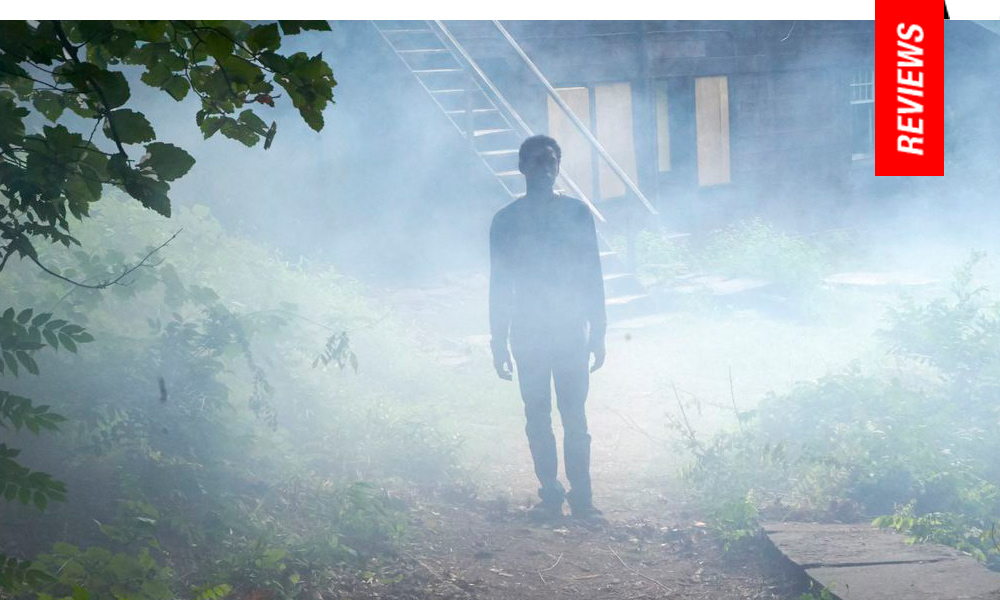Night of Your Life: Shults Plumbs Fear and Fear Itself in Arch Sophomore Effort
Like an art-house M. Night Shyamalan, Shults commands sterling production value and a stellar sense of mise-en-scene, but more aggressive auds won’t find much to sharpen their teeth on with this allegorical wisp masquerading as nightmare fuel.
As a grandfather succumbs to a virulent disease which has disbanded civilization, family man Paul (Joel Edgerton) teaches his son Travis (Kelvin Harrison Jr.) the art of the mercy kill. While his wife Sarah (Carmen Ejogo) isn’t too pleased with her son witnessing any kind of violence, it’s clear Travis is searching for experiences and stimulus beyond the cramped parameters of their home, a cabin lodged deep in the thick of the woods sporting a vibrant red door, which is locked securely every night to avoid the danger of unseen entities lurking in the woods. When Will (Christopher Abbott), a desperate man in search of food for his own family, is trapped by Paul, they decide to invite the man and his kin to join them, assuming more humans means more protection in their abode. But after Will’s wife Kim (Riley Keough) and their young son join the household, communication erodes when the possibility of contamination is apparent.
Just as Shults’ lauded debut Krisha (2015) focused on the perspective of a familial black sheep, empathy is only established with awkward teenager Travis, relegated to peeping tom tendencies as he directly disobeys the established order proscribed by Edgerton’s new age patriarch. The phrase ‘black sheep’ takes on interesting dimension as regards Travis since Shults leaves the historical background of this mixed race family a blank canvas.
It could be simply a matter of casting, but Harrison is much darker than what one would assume to be the biological product of Ejogo and Edgerton, suggesting greater subtexts about assumed familial units imbued with greater survival mechanisms than the homogenous heteronormatives who had the world violently yanked away from them by a suggested onslaught from Mother Nature.
But really, Shults is urging us to come to our own conclusions based on the lack of information regarding the families or the extent of the world’s plunge into disarray. While we can deduce whatever happened isn’t too far in the past based on gasoline, food, and water sources, It Comes at Night arrives at the precipice of when human nature spirals away from civilization and into the abyss of survival mode.
It doesn’t matter, ultimately, what kind of men Paul or Will happen to be. At the end of day, they are perhaps some of the most pragmatic alums of desperate genre characters with their backs to the wall, which may lend their dilemma a sort of Shakespearean twang of fate—the disease, which the film confirms for us to be real, is not dramatic catalyst. Instead, it is one man’s belief that his family and their survival in a brave new world is of such utmost importance he can’t or won’t allow empathy or humanity guide his hand.
Shults’ film bears striking similarity to Daniel Castro Zimbron’s The Darkness (2016), a Mexican/French co-production which stars Brontis Jodorowsky as a menacing father who keeps his children locked in a cabin in the woods as they hide from a monster keen on terrorizing them. Although earmarked with hoary, clichéd twists, it’s as obvious a study on man as his own worst enemy in contentious struggles with the fear itself as Shults’ is obscure.
If It Comes at Night does manage to touch on man’s heart of darkness, however, it does so with such oblique flourishes we don’t care in which way for the survival of either clan. Even during Riley Keough’s howls of rage at the height of the film’s violence, there’s a hollow precision to this beautifully filmed but otherwise empty flicker of pain. These are characters as diminished as the shadows on the cave wall and it’s up to its audience to glean a sense of profundity, if indeed there’s any to be had.
★★½/☆☆☆☆☆
